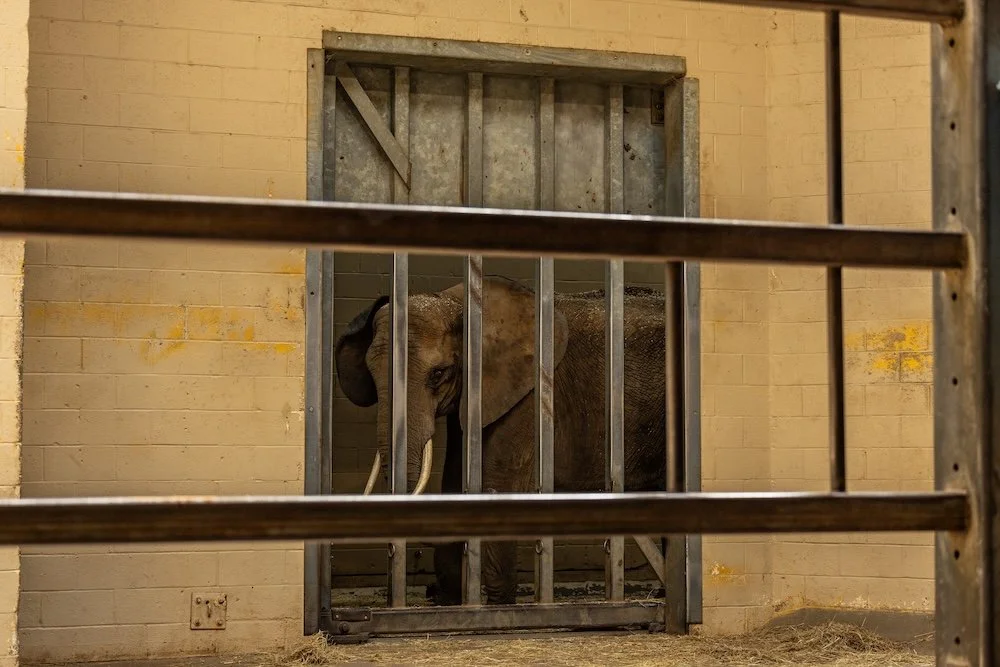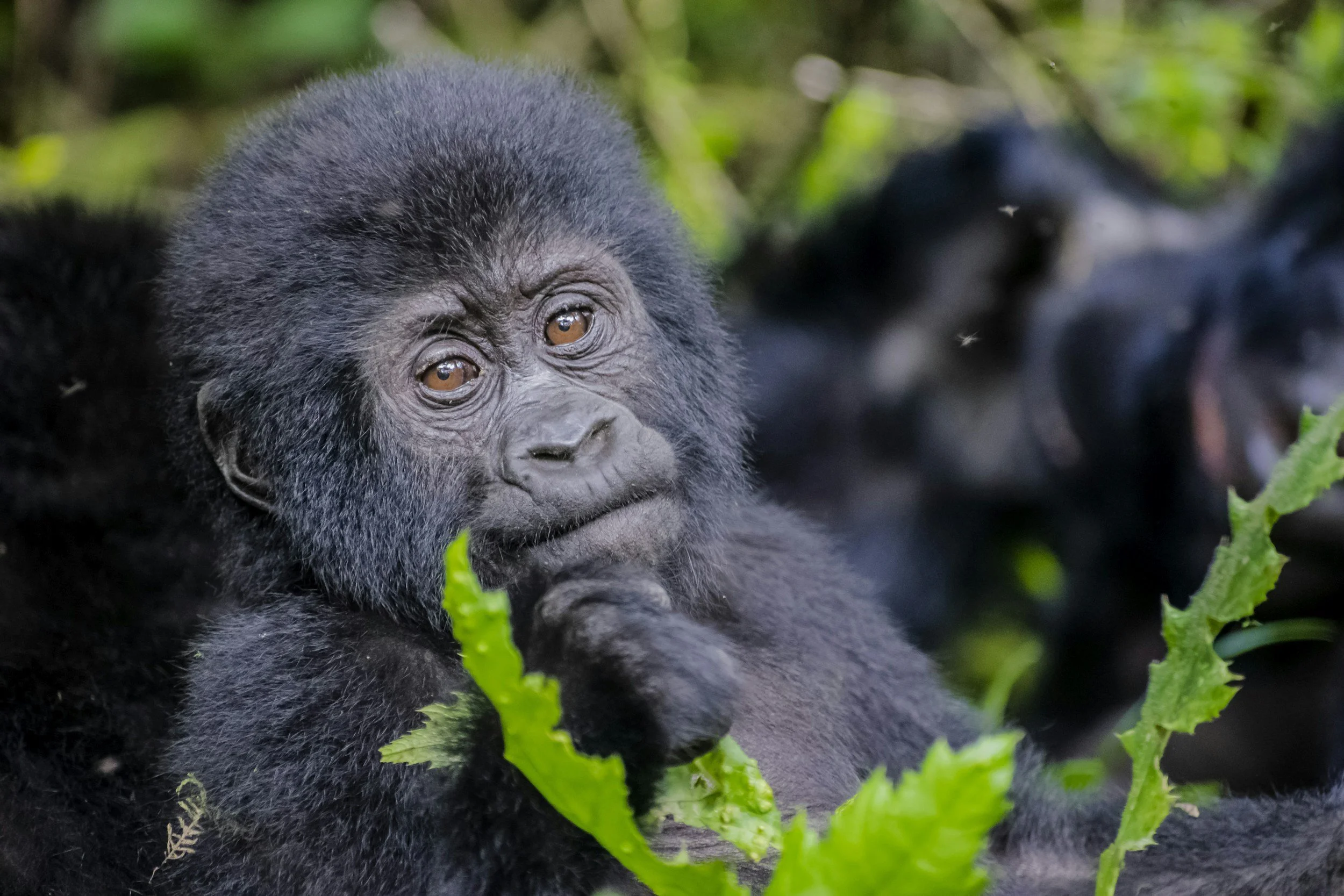Cow's Milk at US Grocery Stores Tests Positive for Bird Flu
The news comes just weeks after H5N1 bird flu was identified for the first time among dairy cattle in Texas and Kansas.
Credit: Jo-Anne McArthur/We Animals Media
Samples of pasteurized milk from grocery store shelves have tested positive for remnants of the bird flu virus that has infected dairy cows, the U.S. Food and Drug Administration said Tuesday.
The announcement comes after Type A H5N1 bird flu was identified for the first time among dairy cattle in Texas and Kansas on March 25, and a dairy worker in Texas contracted the virus.
As of Tuesday, the virus has now been found in dairy herds in at least eight states, Idaho, Kansas, South Dakota, North Carolina, Ohio, Michigan, New Mexico and Texas, according to the USDA.
The USDA has also confirmed that eight poultry farms in five states, Kansas, Michigan, Minnesota, New Mexico and Texas, have been infected with the same virus detected in dairy cattle.
The FDA said that it does not think it is likely that the particles found in grocery store milk would be able to infect people but, to be sure, it is conducting additional tests to see if this is a live infectious virus or the dead virus.
“To date, we have seen nothing that would change our assessment that the commercial milk supply is safe. Results from multiple studies will be made available in the next few days to weeks,” the agency said.
However, the discovery of viral particles in milk found on grocery store shelves suggests that the outbreak is likely more widespread than previously understood, Dr. Eric Topol, the founder of the Scripps Research Translational Institute told NPR.
“The dissemination to cows is far greater than we have been led to believe,” Topol said in an email to NPR Tuesday. “The FDA assurance that the dairy supply is safe is nice, but it’s not based on extensive assessment yet, which they acknowledge, and won’t engender trust and confidence because it comes in the wake of USDA mishandling.”
To attempt to contain the spread of the virus across US cattle farms, a federal order issued on Wednesday now requires dairy cows being moved across states to be tested for the virus.
"The primary focus of the order, initially, will be lactating cattle. But we will certainly have the opportunity to expand beyond that as necessary," Mike Watson, head of the USDA's Animal and Plant Health Inspection Service, told reporters Wednesday.
Until this point, testing had been conducted voluntarily and restricted to cows displaying symptoms. However, FDA officials suggested that certain producers had not fully cooperated in facilitating testing within their herds.
The Next Global Pandemic?
Researchers believe that bird flu could be the root cause of our next pandemic. Although
cases of the H5N1 strain of avian flu in humans are rare, they are fatal in more than 50 percent of those infected.
However, at this point, the Centers for Disease Control and Prevention issued a statement Monday, saying, “This infection does not change the H5N1 bird flu human health risk assessment for the U.S. general public, which CDC considers to be low.”
Dr. Michael Osterholm, director of the Center for Infectious Disease Research and Policy at the University of Minnesota, told CNN that his primary concern is this outbreak potentially spreading to pigs.
Pigs possess the same sialic acid receptors found in the respiratory tracts of both birds and humans, which serve as entry points for the H5N1 virus. Osterholm warned that if H5N1 were to cause a significant outbreak in pigs, it would create an ideal scenario for the virus to adapt and learn to attach to human sialic acids.
“Pigs are a more efficient mixing bowl,” Dr. Peter Hotez, a professor of pediatrics, molecular virology and microbiology at the Baylor College of Medicine in Houston told CNN. “The one thing about where we are in Texas is that, in addition to those cattle, Texas is the epicenter of the feral hog population.”
“In the United States, we have 30% of the nation’s feral hogs, 2 to 3 million feral hogs, and so that to me is a potential risk, as well,” he said.
Intensive animal agriculture is responsible for more than 50 percent of zoonotic diseases, according to the United Nations. Crowded conditions, widespread antibiotic use, genetic modification of animals, and unhygienic conditions increase the risk of viruses that infect animals, mutate, and gain the ability to infect humans.
Alternatives to Cow’s Milk
The Physicians Committee for Responsible Medicine, a public health nonprofit of more than 17,000 doctors, is offering 5 Nutritious Alternatives to Cow’s Milk for consumers concerned about bird flu in cow’s milk.
“To avoid health concerns associated with drinking cow’s milk, there are many great dairy alternatives to try,” said Nutrition Education Specialist Dr. Anna Herby of Physicians Committee. “Soy milk is the highest in protein and has the added benefits of isoflavones, which can reduce breast cancer risk. Almond milk goes great on cereal, and oat milk is tasty in a latte.”
You can find the full list of alternatives here.
We Have A Favor To Ask…
Species Unite amplifies well-researched solutions to some of the most abusive animal industries operating today.
At this crucial moment, with worldwide momentum for change building, it’s vital we share these animal-free solutions with the world - and we need your help.
We’re a nonprofit, and so to keep sharing these solutions, we’re relying on you - with your support, we can continue our essential work in growing a powerful community of animal advocates this year.





